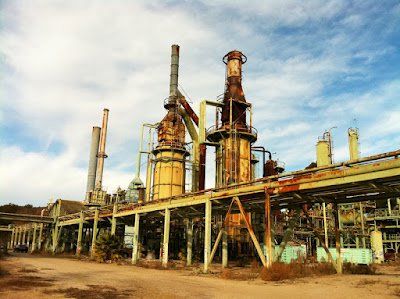Without Adequate Financial Assurances, Oil Refineries Present Long Term Environmental Justice Hazards
Richard Mietz, Ella Carlson, and John Talberth • April 14, 2022

There are currently 124 active oil refineries in the United States with an operating capacity of roughly 17.7 million barrels per day. As the transition away from fossil fuels accelerates careful planning is needed to ensure that these facilities don’t degrade and become more dangerous as they continue to operate or become abandoned toxic brownfields that saddle future generations with long term environmental hazards and enormous clean-up costs.
As part of its Fossil Fuel Risk Bond Program, Center for Sustainable Economy and its partners have been advocating for state and local governments to take a hard look at what financial resources owners have set aside for compensating victims and repairing damage when catastrophic accidents occur and for dismantling, removing, and restoring sites to their natural condition (DRR) to prepare the ground for beneficial land uses in the future.
In this policy note, CSE compiled data from federal, state, and local agencies to determine the adequacy of financial assurance mechanisms for a sample of 10 active or recently closed oil refineries in four states and found that funding for DRR activities and accidents are far below what is needed.
READ
full report
Share Post
All Rights Reserved | Center for Sustainable Economy


